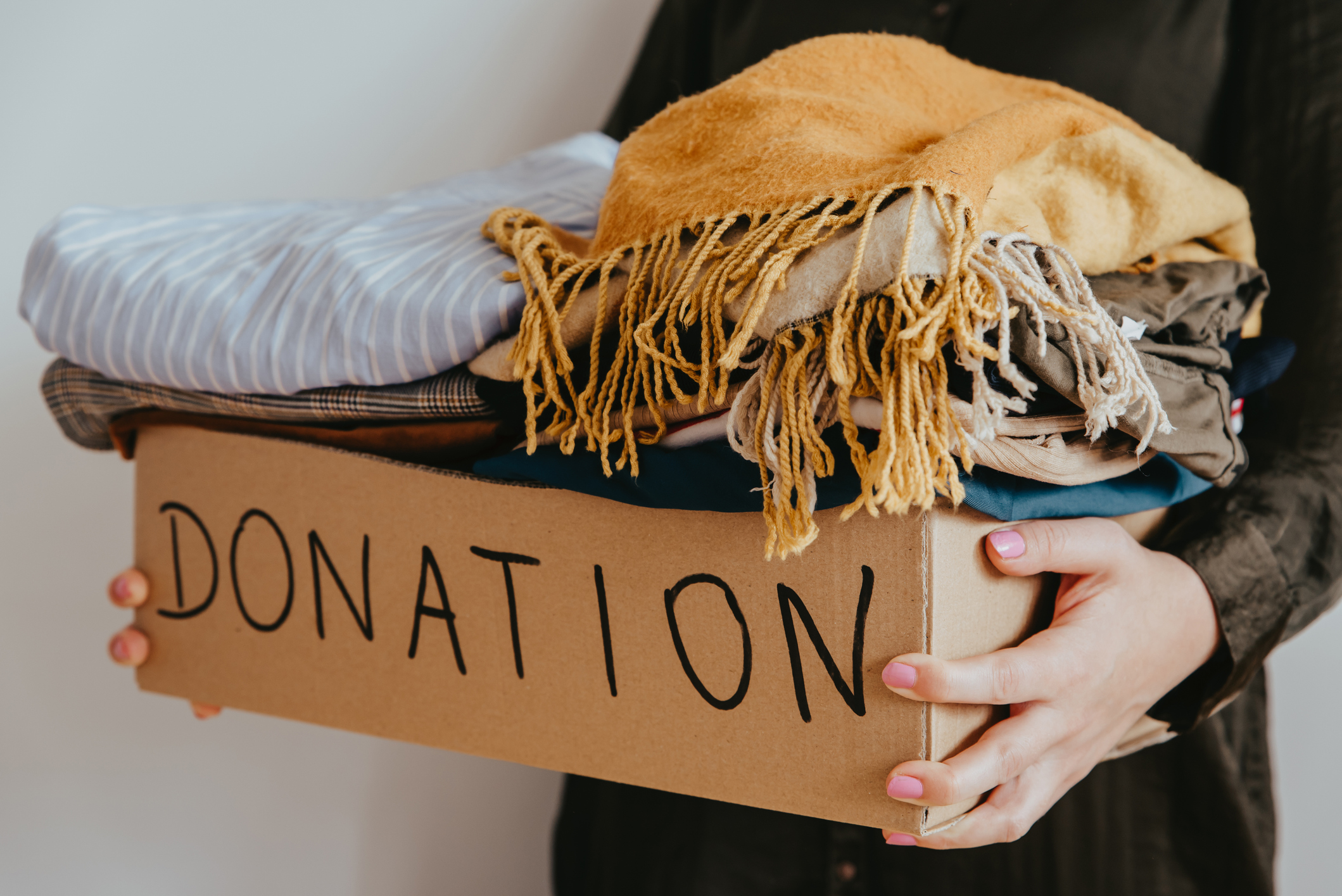The 10 Safest Countries to Visit
Vacation in the safest countries to dodge violence, viruses and pickpockets.

Profit and prosper with the best of Kiplinger's advice on investing, taxes, retirement, personal finance and much more. Delivered daily. Enter your email in the box and click Sign Me Up.
You are now subscribed
Your newsletter sign-up was successful
Want to add more newsletters?
Global Peace Index data was updated on July 1, 2025.
Planning international travel? Make sure you know the safest countries to visit based on solid data, not just sensational news reports. And when in doubt, check some of the travel advisory sites provided here for a full picture of a country's safety profile.
The 10 safest countries may surprise you
There are many ways to measure security at the country level, but one of the most comprehensive assessments is the annual Global Peace Index (GPI). The GPI crunches data on violent crime rates, perceptions of crime, violent demonstrations, terrorist attacks and more.
From just $107.88 $24.99 for Kiplinger Personal Finance
Become a smarter, better informed investor. Subscribe from just $107.88 $24.99, plus get up to 4 Special Issues

Sign up for Kiplinger’s Free Newsletters
Profit and prosper with the best of expert advice on investing, taxes, retirement, personal finance and more - straight to your e-mail.
Profit and prosper with the best of expert advice - straight to your e-mail.
Here are the 10 safest countries according to the GPI 2025 list. Western European countries often top lists for safest countries, but several countries in the Asia-Pacific region also made the cut, including New Zealand and Singapore.
New Zealand is known for breathtaking natural settings that served as backdrops when filming The Lord of the Rings. While Singapore tends to be expensive. One lesser-traveled European country on the list, Slovenia, offers ski resorts, castles and outdoor adventures such as exploring a warren of caves or hiking in the mountains.
Portugal is also on Kiplinger's list of the 10 cheapest countries to visit.
Although Japan has fallen out of the top ten safest countries, it now ranks a respectable 12th place in 2025, up from the 17th spot in 2024. Japan also made Kiplinger's list of the best places to visit where the dollar is strong.
Top 10 safest countries according to GPI 2025
- Iceland*
- Ireland
- New Zealand
- Austria
- Switzerland
- Singapore
- Portugal
- Denmark
- Slovenia
- Finland
*Iceland continues to be a very safe destination, but travelers should be aware of volcanic and seismic activity in the Reykjanes peninsula that started in November 2023. Some attractions, such as the famous Blue Lagoon Resort, may be closed. For updates, see reports from Iceland's SafeTravel website, or download the app. You may also wish to check the Icelandic Met Office. Although the Keflavik International Airport is near the potential volcanic eruption, The New York Times reports that flights are unlikely to be grounded by ash clouds, as in 2010 when an Icelandic volcano erupted. Nevertheless, travelers should monitor their flights, on-ground reservations and volcanic forecasts as the situation evolves.

How to check if your destination is safe
Before you avoid a destination because it scores poorly on the Global Peace Index, know that for most travelers “the actual risks are more mundane,” says Matthew Bradley senior vice president of risk solutions.
In most places, you’re likelier to experience petty theft, traffic accidents or gastrointestinal problems than a terrorist attack. Instead of writing off certain places because of bad press, use these strategies to judge a destination.
Check government advisories. To review the U.S. Department of State’s advice for travelers, go to the Travel Advisories page and search for the country you wish to visit. Each country is rated one of four levels, with Level 1 advising travelers to “exercise normal precautions” and Level 4 indicating “do not travel.”
Read the full advisory and the Safety and Security section, because these write-ups describe the severity of the dangers you could face and drill down into regions or cities that carry higher — or lower — risks than elsewhere in the country.
The State Department also offers the Smart Traveler Enrollment Program (STEP), where you can sign up for safety alerts and register with the local embassy. Enrolling in STEP is a good idea if you are visiting a riskier country.
Sometimes advisories issue alarming warnings, such as “terrorist groups continue plotting possible attacks” or “pickpockets and purse-snatchers operate aggressively,” even in seemingly benign countries. But be aware that the advisories “err on the side of caution,” says Bradley. Ted Blank, a travel agent in Stillwater, Minnesota, recommends cross-checking the State Department’s perspective with travel advisories written by other governments, such as the United Kingdom’s page on Foreign Travel Advice.
Balance government reports with guidebooks and other objective resources. Fodor's also offers tips for women traveling abroad, such as packing portable door locks and personal alarms.
LGBTQ+ travelers attending Pride events or other celebrations should take extra precautions. The International LGBTQ+ Travel Association provides up-to-date safety advice. It also tracks global trends that may affect travelers’ comfort and security.
Political risk can change quickly. On June 22, 2025, the Department of State issued a Worldwide Caution Security Alert advising U.S. citizens overseas to exercise increased caution, due to the conflicts between Israel and Iran.
If a hotel you booked is in the thick of alarming news reports, call and ask what precautions the staff recommends for guests, rather than simply asking, “Is it safe?” says Michael McCall, professor of hospitality marketing at Michigan State University.
Avoid illness. For older adults or patients with weakened immune systems, consider avoiding countries, especially rural areas, with poor public health systems and active outbreaks of diseases like dengue or COVID. You can check the CDC Destinations website for travel advisories, outbreaks, required immunizations and other information for each country. Keep in mind that malaria is endemic in much of the world and may require prophylactics. You also might consider getting travel medical insurance.
Medication Tip: To avoid having medications confiscated at the border, follow our guide if you plan to bring medications along with you on international travel.
Use a travel agent. For an extra layer of security, organize your trip through a travel agent or tour operator in lieu of online booking sites. Travel agents can give you real-time information from local contacts, distinguish secure tourist zones in the midst of sketchier regions, and help you adjust your itinerary.
A reputable tour operator (start your search at www.ustoa.com) will have on-the-ground partners to help assess the safety of upcoming trips and reroute you as necessary. Travel agents can ensure your bookings are secure, reducing the risk of scams or last-minute cancellations. Having a professional advocate in your corner can make all the difference when navigating unfamiliar destinations.
Before you go
Travel insurance may help you recoup the costs of canceling your trip or cutting it short, depending on the circumstances. Most insurers exclude countries under U.S. sanctions for national security or other reasons; some insurers also impose higher premiums and certain restrictions on “high-risk” countries.
Before you leave, carefully review the policy details, including coverage limits, exclusions, and whether trip interruptions due to civil unrest, natural disasters, or health emergencies are included. Purchasing a "Cancel for Any Reason" (CFAR) policy can offer even broader protection, though it typically comes with higher premiums.
Finally, if an outbreak of violence, disease or a natural disaster is standing in the way of your trip, try to negotiate a refund or credit directly with your airline or hotel. “Companies often evaluate these situations on a case-by-case basis,” says Misty Belles, managing director of global public relations for Virtuoso, a luxury-focused network of travel agencies.
Earn rewards faster and enjoy exclusive perks, including complimentary airport lounge access when you add one of Kiplinger's top airline cards to your wallet, powered by Bankrate. Advertising disclosure.
Read More
Profit and prosper with the best of Kiplinger's advice on investing, taxes, retirement, personal finance and much more. Delivered daily. Enter your email in the box and click Sign Me Up.

Brittany Leitner is a freelance journalist with over 10 years of experience in lifestyle, health, and more. She received a Digital Health Award for her reporting in 2019 as well as numerous awards for her work in poetry. She previously held positions as senior editor at Elite Daily and managing editor at The Dr. Oz Show. Follow her online @britariail.
-
 Why Some Michigan Tax Refunds Are Taking Longer Than Usual This Year
Why Some Michigan Tax Refunds Are Taking Longer Than Usual This YearState Taxes If your Michigan tax refund hasn’t arrived, you’re not alone. Here’s what "pending manual review" means and how to verify your identity if needed.
-
 If You'd Put $1,000 Into Caterpillar Stock 20 Years Ago, Here's What You'd Have Today
If You'd Put $1,000 Into Caterpillar Stock 20 Years Ago, Here's What You'd Have TodayCaterpillar stock has been a remarkably resilient market beater for a very long time.
-
 Good Stock Picking Gives This Primecap Odyssey Fund a Lift
Good Stock Picking Gives This Primecap Odyssey Fund a LiftOutsize exposure to an outperforming tech stock and a pair of drugmakers have boosted recent returns for the Primecap Odyssey Growth Fund.
-
 5 Laundry Habits That Are Costing You Money
5 Laundry Habits That Are Costing You MoneyYou might be flushing money down the drain if you have any of these laundry habits.
-
 My First $1 Million: Banking Executive, 37, Nashville
My First $1 Million: Banking Executive, 37, NashvilleEver wonder how someone who's made a million dollars or more did it? Kiplinger's My First $1 Million series uncovers the answers.
-
 10 Decluttering Books That Can Help You Downsize Without Regret
10 Decluttering Books That Can Help You Downsize Without RegretFrom managing a lifetime of belongings to navigating family dynamics, these expert-backed books offer practical guidance for anyone preparing to downsize.
-
 New Ways to Keep Your Online Accounts Safe
New Ways to Keep Your Online Accounts SafeAs cybercrime evolves, the strategies you use to protect yourself need to evolve, too.
-
 Can Your Car Insurance Add Strangers to Your Policy? A Florida Class Action Lawsuit Could Decide
Can Your Car Insurance Add Strangers to Your Policy? A Florida Class Action Lawsuit Could DecideA Florida driver says GEICO added complete strangers to her car insurance policy and jacked up premiums as a result.
-
 Life Loves to Throw Curveballs, So Ditch the Rigid Money Rules and Do This Instead
Life Loves to Throw Curveballs, So Ditch the Rigid Money Rules and Do This InsteadSome rules are too rigid for real life. A values-based philosophy is a more flexible approach that helps you retain confidence — whatever life throws at you.
-
 The Best Short-Term CD for Your Cash in 2026
The Best Short-Term CD for Your Cash in 2026This strategy can help you earn thousands in months.
-
 What Is an Assumable Mortgage and Could It Save You Thousands?
What Is an Assumable Mortgage and Could It Save You Thousands?With mortgage rates still elevated, taking over a seller’s existing home loan could lower monthly payments — if the numbers work.
